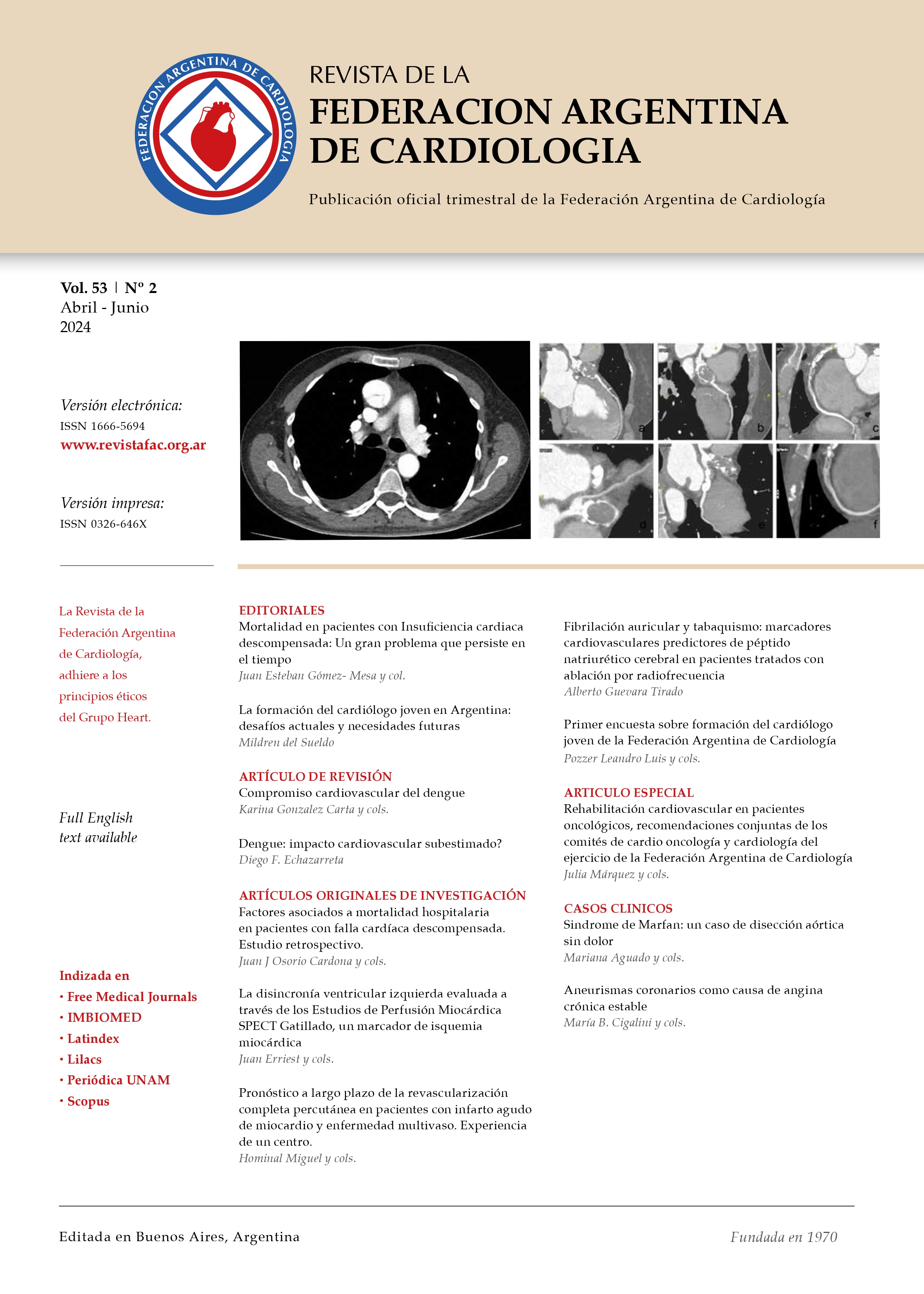Cardiovascular complications of dengue
Keywords:
Cardiovascular complications, DengueAbstract
Dengue is an infection caused by four serotypes of the dengue virus and transmitted by mosquitos of the Aedes genus. Dengue is endemic in more than 100 countries, with a global population in risk of around 50% of the world, and an estimated incidence that has increased thirtyfold in the last 50 years. It has quickly turned into a worldwide problem. According to the Pan American Health Organization (PAHO), Argentina and Brazil lead the ranking of new cases of dengue in America. Over the course of the present year, cases have increased to 5.2 millions, and 1800 deaths have been reported. Dengue viruses are transmitted to people through the female mosquito bite of the infected Aedes species (Aedes aegypti or Aedes albopictus). These mosquitos also transmit the zika, chikungunya and yellow fever viruses. The disease has a wide clinical spectrum, which goes from an asymptomatic state or mild fever, until severe manifestations such as dengue hemorrhagic fever or dengue shock syndrome, as observed in around 5% of cases. In severe forms, the disease may manifest with cardiovascular complications, severe bleeding and multisystem compromise in the form of hepatitis or neurological dysfunction.



